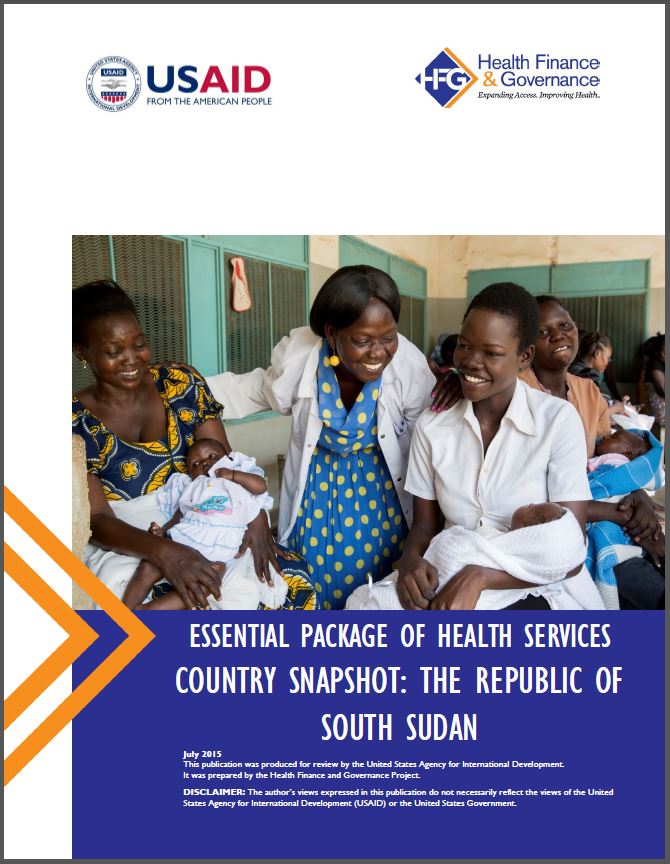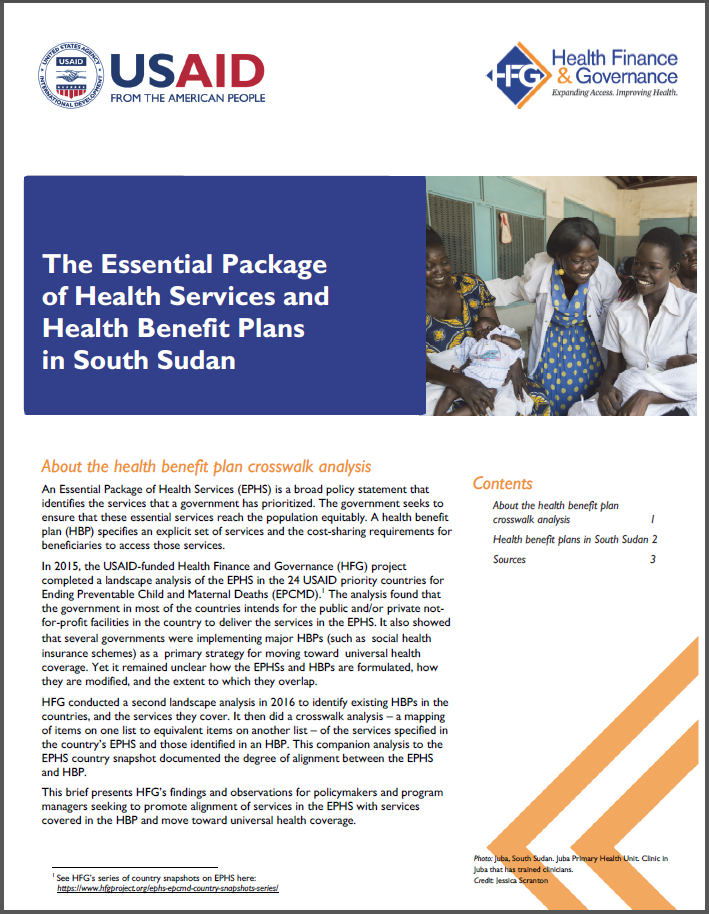Essential Health Services: The Republic of South Sudan
Categories: Health Insurance (CBHI, SHI), Maternal, Neonatal and Child Health (MNCH), Publications, Universal Health Coverage
 Essential Package of Health Services Country Snapshot
Essential Package of Health Services Country Snapshot
Resource Type: Brief
Authors: Jenna Wright
Published: July 2015
Resource Description:
An Essential Package of Health Services (EPHS) can be defined as the package of services that the government is providing or is aspiring to provide to its citizens in an equitable manner.
This country snapshot is one in a series of 24 snapshots looking at the governance dimensions of Essential Packages of Health Services in the Ending Preventable Child and Maternal Death priority countries. The snapshot explores several important dimensions of the EPHS in the country, such as how government policies contribute to the service coverage, population coverage, and financial coverage of the package.
The Republic of South Sudan, formed in 2011, has made clear statements on its Ministry of Health website and in the Constitution that it aspires to provide a basic package of health services to its citizens. The Health Sector Development Plan 2012–2016 for the government of South Sudan refers to the Basic Package of Health and Nutrition Service for Southern Sudan (2009), so we conclude that this package, although developed prior to the country’s formation, currently serves as the EPHS for the Republic of South Sudan.
Download
 Essential Package of Health Services and Health Benefit Plans Mapping Brief
Essential Package of Health Services and Health Benefit Plans Mapping Brief
Resource Type: Brief
Authors: Jeena Mathew
Published: June 2017
Resource Description:
Many governments are scaling up health benefit plans, such as social health insurance, to increase population health coverage. This brief presents findings from a mapping between the services covered under the country’s prominent health benefit plan(s) to the country’s Essential Package of Health Services. The mapping analyzes the extent to which the plan(s) cover essential services.
This brief is for policymakers and program managers seeking to promote universal health coverage. It presents HFG’s findings and observations about the relationship between the services in an EPHS and the services covered in HBPs.



